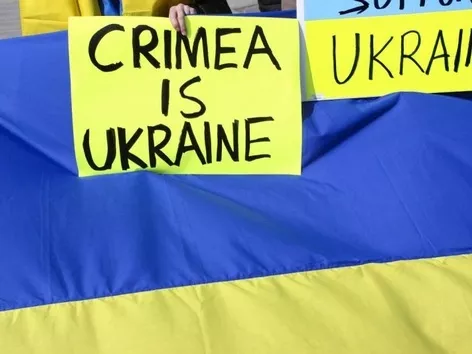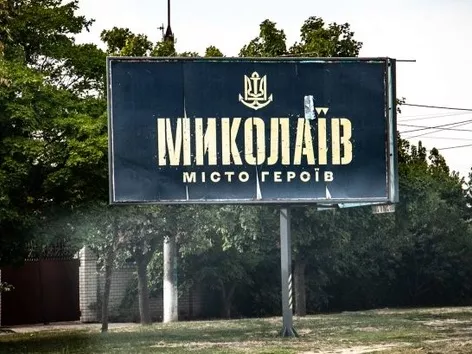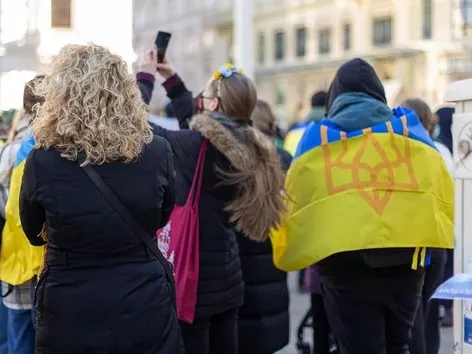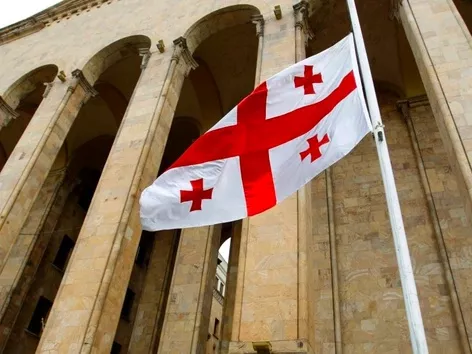De-occupation of Crimea: what awaits the peninsula after liberation from russian invaders

The closer the Ukrainian Armed Forces' counter-offensive gets, the more discussions arise around the topic of the Crimean Peninsula. Find out more about what experts and Ukrainian authorities say about the status of Crimea after our Victory
The fact of the transfer of the Crimean Peninsula to Ukraine is shrouded in myths that have nothing to do with reality. And you can try to rewrite history as much as you want, but facts are indestructible. Let's find out together why russia is trying to distort the facts and what mistake the Ukrainian authorities made regarding Crimea's autonomy.
Why was Crimea transferred to Ukraine in 1954?
When looking for information about the real reasons and motivation for the transfer of the peninsula, you will not find any mention of "gifts" or "a way to strengthen friendly relations between fraternal peoples". The decision announced by the party pursued only pragmatic goals: "Taking into account the territorial attraction of the Crimean region to the Ukrainian SSR, the common economy and close economic and cultural ties between the Crimean region and the Ukrainian SSR".
It is worth noting that the decision adopted on 25 January had no legal force, and the Crimean Peninsula de facto became part of Ukraine only on 26 April of the same year. However, it entailed quite logical consequences - the emergence of relevant resolutions in the state structures of the Ukrainian SSR, RSFSR and USSR, which verbatim repeated the wording of the reasons for the transfer of the Crimean region to Ukraine.
It is also interesting to note that when casting their votes for the transfer of the peninsula, party members took into account objective reasons, not the whims of Khrushchev, who had no influence on this decision. After all, the issue of Crimea began to mature in 1952, during Stalin's rule, when he faced the irreparable consequences of the deportation of Crimean Tatars and other peoples from the peninsula. This means that all myths about the "gift" come to naught.
What happened before Crimea became an Autonomous Republic?
The Crimean Peninsula of 1954 was a territory destroyed by the World War, deportations and the absence of any economic activity because Stalin's colonizers, who came from the Northern regions, could not manage those lands.
By the way, neither the Crimean Khanate nor the russian empire was able to solve the eternal issue of fresh water shortage on the peninsula. Ukraine was the first to do so in the 1960s and 1970s, when it built the North Crimean Canal, which began to supply water from the Kakhovka Reservoir.
This was the main impetus for the development of agriculture and pond fish farming. In addition, all the popular healthcare facilities and boarding houses, camps for children and sports camps, seaports and reservoirs, and even educational institutions, residential buildings, hotel and restaurant complexes, and theaters were built with Ukrainian funding.
Why should Ukraine not have proclaimed Crimea's autonomy?
The process of returning the Crimean Tatar people from places of deportation dates back to the beginning of 1991, when a referendum on the status of Crimea was held. That is, the decision was made without the participation of the indigenous people of the peninsula. It is important to note that initially the idea of returning autonomy belonged to the national movement of the Crimean Tatars, but it was successfully intercepted by the Communist Party nomenclature of the peninsula, which actually used it against the Crimean Tatar movement.
Why did this happen? Because even the idea that the Crimean Tatars would get at least some levers of power was simply unacceptable to the Soviet Union after what they had done against them. It is also important to note that the referendum had no legal basis, because at that time there were simply no laws on referendums that would have regulated this process in the legal field.
Therefore, the proclamation of the peninsula as an Autonomous Republic did not yield any positive results for either Ukraine or the Crimean Tatars. In fact, the decision was agreed without taking into account the interests of the Crimean Tatars themselves, ignoring all their rights, and contrary to Ukrainian law.
As it became clear later, the 1991 referendum was a time bomb that exploded in 2014. After all, the ideas that were propagated to restore Crimea's autonomy were completely far from the real needs of the indigenous people of the peninsula and the interests of Ukraine itself.
Moreover, this decision was the result of agreements made by pro-Soviet communist elites, which laid a solid foundation for the future occupation. Because, de facto, until 2013, the legislation on the statehood of the Ukrainian language was not even enforced in Crimea, and almost 90% of schoolchildren were taught in Russian, 7% in Ukrainian, and only 3% in Crimean Tatar.
Visit Ukraine on social media: Telegram | YouTube | Instagram | Facebook | Twitter | TikTok
What will happen in Crimea after de-occupation?
Today, looking at the events that took place when Crimea was proclaimed an autonomous part of Ukraine, we understand that the peninsula was supposed to be granted the status of national-territorial autonomy with the right of its indigenous people to self-determination, not autonomy in the form we see today. That is why this issue is being raised so sharply now.
For example, according to Mykhailo Podolyak, Advisor to the Head of the Presidential Office, after the de-occupation of Crimea, it will lose its status as an autonomous republic. After all, a unitary state cannot have any autonomizes, which, under certain circumstances, can become the basis for organizing separatist movements. And Ukraine has already learned enough lessons to avoid going down this path again.
In addition, according to Podoliak and other experts who have spoken on this issue, Ukraine should give the most objective assessment of the price paid by the indigenous people of the peninsula at each stage of the russian invasion and that their moods may differ significantly from the plans of our state. Therefore, we have an equally difficult path ahead of us, which involves "gentle Ukrainisation" and balancing the interests of Ukraine with the wishes of national minorities.
Algorithm of actions after the liberation of Crimea from russian invaders
According to First Deputy Speaker of the Verkhovna Rada Oleksandr Kornienko, the political and legislative framework should be ready for the return of Crimea now.
That is why the Verkhovna Rada presented a strategic plan of Ukraine's priority steps after the liberation of the peninsula from russian invaders, which includes
- Immediate prosecution of all those involved in international crimes and crimes against the national security of Ukraine;
- facilitating the restoration of the functioning of public administrations and staffing;
- amnesty and lustration measures;
- verification and other verification measures in relation to documents and decisions made by the occupation courts;
- issues related to property rights and other humanitarian measures;
- reformation and demilitarization of the educational and cultural sphere.
To date, the first significant steps have already been taken to resolve issues related to the future of Crimea. In particular, the Parliament has adopted legislation on indigenous peoples and national communities.
We are confident that Crimea will return home very soon!
As a reminder, during the occupation of the peninsula, russia has settled quite a few of its citizens on its territory. Read more about the fate of russian citizens after the peninsula is returned to Ukraine in our article here.
Photo: Depositphotos
You may be interested in:
Visit Ukraine Donation - make a good deed and an important contribution to the Victory of Ukraine;
Visit Ukraine Tours - the largest online database of tours to Ukraine for every taste;
Visit Ukraine Merch - choose patriotic clothing and accessories with worldwide delivery;
Visit Ukraine News - get the latest news and updates in our Telegram channel;
Cooperation - cooperation and advertising integrations with Visit Ukraine and Visit World projects.
Recommended articles
3 min
Der Weg zum Sieg
russian music follows the ship: how many Ukrainians listen to the songs of the occupiers
The content we consume has a direct impact on our worldview and, unfortunately, on the financing of the aggressor's military machine. Here's how the statistics of listening on streaming platforms have changed and how many people have already given up russian-language content
10 Mai. 2023
More details3 min
Beliebt
90% of the population returned: how Mykolaiv and the region live today
russian shelling, lack of drinking water, lack of jobs and mined areas have not been an obstacle for the people of Mykolaiv region. We tell you how unbreakable Mykolaiv lives and why people decide to return to their homes
11 Mai. 2023
More details1 min
Für Flüchtlinge
Why Ukrainian refugees are returning home: important reasons
Since the beginning of the full-scale war, more than 18 million Ukrainians have traveled abroad. However, time goes on and most citizens have returned or are planning to return home. Find out more about what makes refugees return to Ukraine
11 Mai. 2023
More details1 min
Krieg
Another provocation: russia lifts ban on flights to Georgia and visa regime
Georgian authorities may resume flights with russia for the first time since 2019. Find out more about how the situation may affect Ukrainians living in Georgia
11 Mai. 2023
More details

